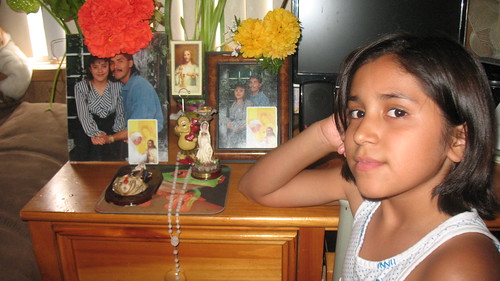By John Rudolph, FI2W Executive Producer
For many Americans, May 1, 2006 was when they first began to comprehend the power of the nation’s Spanish-language media. Hispanic radio and TV played a key role on that day, urging Latino immigrants to take time off from work to demonstrate for immigration reform. Millions participated in the protests in cities across the country.
But while Hispanic media was credited for its role in bringing out the masses on the “day without immigrants,” most people remain unaware of the long history of the Spanish-language press in America, and its tradition of advocating for Latino interests.
The first U.S.-based newspaper for Spanish-speaking readers – El Misisipi – made its debut in New Orleans in 1808, nearly two centuries before the historic marches of 2006.

La Cronica, published in Laredo, Texas, served Mexican exiles in the early 20th Century.
By the mid-19th Century Spanish-language newspapers were editorializing and covering news in New York, California, Texas, New Mexico and Pennsylvania. Among the causes they supported were independence for Mexico and Cuba, which at the time were Spanish colonies.
The nation’s oldest continuously-published Latino newspaper, – La Prensa – was founded in New York in 1913, and exists today as the daily El Diario/La Prensa.
“We’ve been around for years. We’re not a new media,” said Juan Gonzáles, who chairs the Journalism Department at the City College of San Francisco.
Gonzáles is producing a film that tells the story of America’s Spanish-language media, Voices for Justice: The Enduring Legacy of the Latino Press in the U.S. Along with fellow filmmaker, Félix F. Gutiérrez, a professor of Journalism at the University of Southern California, Gonzáles recently showed a preview of the film to an audience of ethnic media journalists in Atlanta.
Gonzáles told Feet in Two Worlds that the film intends to dispel myths about Latinos both among Hispanics and in the wider society. ” Through the pages of our newspapers we really get an impression of what Latinos are like,” he said. “Mainstream media always shows negative stories (about Latinos) — about gang activity and crime.” Gonzáles noted that many Latinos don’t know the history of the Spanish-language press. “We’re feeling a big gap of knowledge,” — he said — “the film is going to fill a void in telling the story of a people.”
The film project is also a way for Gonzáles and Gutiérrez to prod the Hispanic press to be more aggressive in the way it reports the news.
Today there are hundreds of Hispanic newspapers and magazine across the country. Spanish-language radio is a huge business, and Hispanic TV networks Telemundo and Univision have become as mainstream as their English-language counterparts.
Despite the numbers, Gonzáles, who founded El Tecolote, a bilingual community newspaper in San Francisco, laments that there’s “a lot of fluff” in journalism aimed at Latino audiences. “It does a disservice to the community,” he said.
“When it comes to hard stories, it’s something I continue to push for,” he said. “However much you don’t want to do it, you have to do it. Your simple existence is not enough. You need to help the community change conditions through your solid reporting.”











